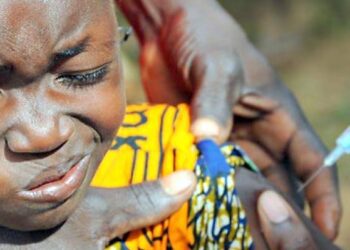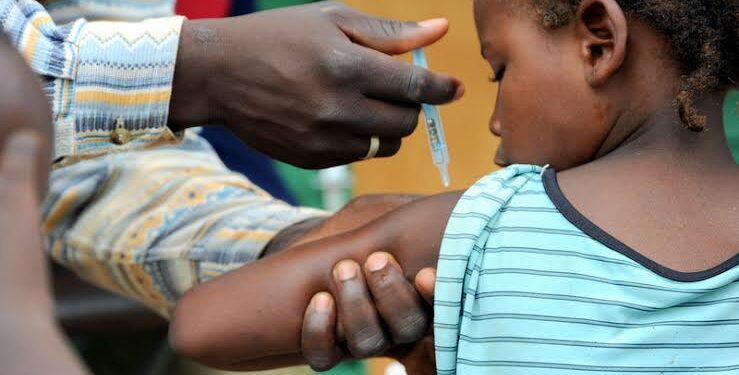The measles outbreak in Nigeria and other infections have been linked by UNICEF to a number of factors, including declining immunity, the importation of cases, a loss in herd immunity, and inadequate public health infrastructure.
Dr. Pita Obam, UNICEF Consultant on Social and Behavioural, stated this at a one-day meeting of the State Social Mobilisation and Technical Committee (S-SOMTEC) held in Abeokuta, Ogun State’s capital, and noted that misinformation and vaccination hesitancy have exacerbated the situation.
The State Ministry of Information and Strategy coordinated the program with UNICEF and other relevant parties.
While blaming the poor level of vaccination for the ongoing measles and other illness outbreaks in the nation, Obam stated that all hands must be ready to guarantee high-quality participation from all State stakeholders.

“All parties involved must cooperate in raising awareness and distributing important messages via authorised channels.
“They must also help in countering rumours of vaccine safety, engage in supportive supervision and resolve non-compliance,” the physician’s representative stated.
He went on to say that measles was extremely contagious, emphasising the importance of immunising youngsters.
Speaking about the impending measles vaccination campaign in the state, Obam stated that it will run from September 19 to September 25, and urged parents to vaccinate their children.
“To eliminate ‘zero dose children,’ the target age is children between nine and 59 months, and they are expected to complete their childhood immunisation at a health facility,” he stated.
Dr. Olubukola Omotoso, a public health educator at the Ministry of Health, presented a breakdown of the state’s cholera outbreak.
According to Omotoso, 11 of the state’s 20 local government units had cholera outbreaks, with a total of 135 documented cases since the outbreak began.
“As of Monday, there have been 135 documented cases since the epidemic, including four deaths.
“We have 131 cases discharged from our facilities and no new reported case of cholera in Ogun,” she said
Earlier in his remarks, the ministry’s Permanent Secretary, Alhaji Waheed Adesina, stated that the gathering highlighted the dedication to the well-being of mothers and children.
“These are those whose roles in our society are undeniably crucial” .
He also stated that the state government has consistently ensured that mothers and children are not left behind in any maternal and infant treatments, regardless of the country’s socioeconomic reality.
“This pledge is ideally aligned with the global Sustainable Development Goals (SDGs), which promote inclusion and the well-being of all people.
“You will recall that in the last two months, our state faced a cholera outbreak, which resulted in a few regrettable deaths.
“The state administration quickly responded to the outbreak and successfully contained its spread.
“However, we understand that our task is far from done.
“We are now focussing on implementing preventive measures to avoid any future resurgence of this disease,” he said.
Adesina praised UNICEF and other stakeholders for their ongoing support and commitment to citizens’ health and well-being.
In Essence
The importation of measles cases shows that the disease is being introduced from outside the country, highlighting the need for stringent border health controls and international cooperation in disease surveillance and prevention, inadequate public health infrastructure will exacerbates the situation.
Strengthening healthcare facilities, improving access to vaccines, and ensuring that healthcare workers are adequately trained and equipped are crucial steps in mitigating outbreaks.

















